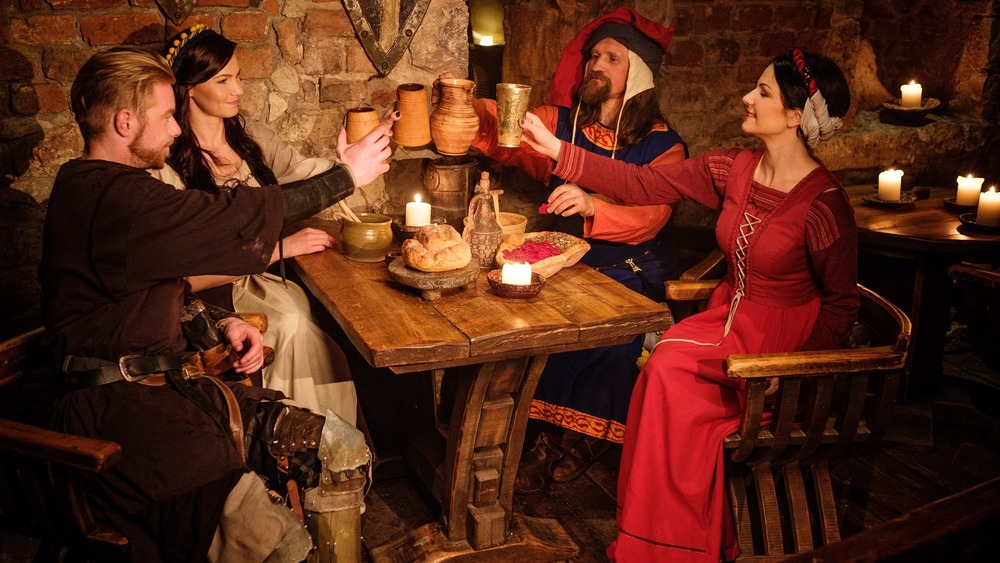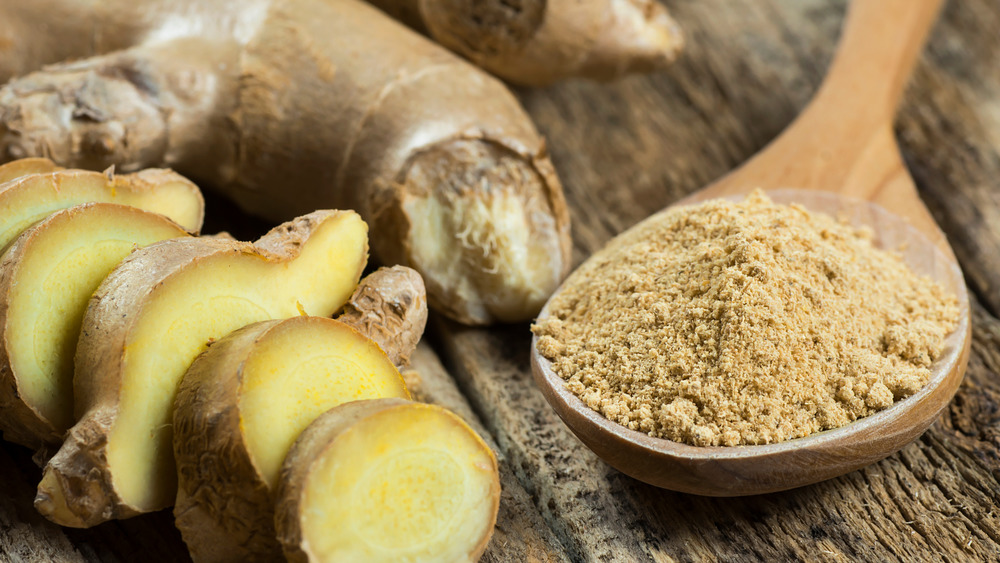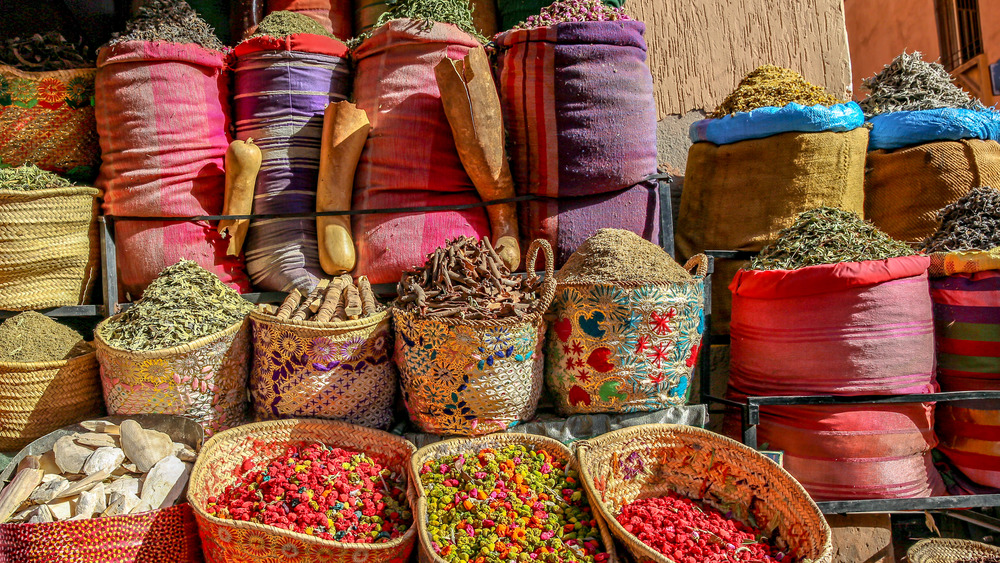A Look At The Myth About Medieval Spices
When most people think of recreating medieval cuisine, they usually start reaching for the entire spice box. The idea was that medieval cooks slathered their food with so much spice to disguise rotting meat's smell and taste. However, not only is the concept of people eating putrid flesh not authentic, but spices were not as common as you think.
Spices are often used to help preserve meat, said Culinary Lore, particularly as pickling and salting used them. In an age where refrigeration wasn't around, and a lot of protein like meat and poultry could be expensive, preservation was vital. Most of the poorer population tended to eat food they grew to cut down on transportation and the need for heavy preservation. They still smoked, pickled, and salted their food, but they didn't rely on the heavy spices rich people used.
It's not that medieval cooks didn't use them, but spices were mainly reserved for the rich. Ingredients like nutmeg, ginger, cinnamon, and cloves came from far-off countries in the East. As such, they tended to be fairly luxurious items. On the other hand, peasants ate simpler food and kept pigs and cows for both dairy and meat. Their food was mostly dairy-based. So it was only the wealthy that got to enjoy spices and usually only during large feasts when these would be heavily sprinkled on similarly exotic meats.
There were medieval laws against spoiled meat
Even though rich people liked spicing up their food, recipes from the Middle Ages clearly didn't use spices to disguise rotten food. Written accounts specified fish and fowl must be caught and cooked fresh. Menus from famous banquets had heavily spiced dishes, but these were in the minority. Not only that, but some medieval French cooks even added the spices very late in the cooking. If they wanted to disguise rotten meat, then the ginger, cardamom, and pepper would've been added earlier, and the food then allowed to marinate in the spices to soak the flavor in. Besides, wealthy landowners had access to vast forest land that they owned, so they very often had freshly slaughtered meat at their table.
If medieval cooks did try to serve rotting food and disguise the smell and flavor with spices, they still wouldn't have succeeded, said Culinary Lore. Food poisoning is no joke, and no matter the historical period, it happens if people eat spoiled meals. And anyone caught selling rotten food faced terrible consequences.
Historians also noted that most of the food people ate, rich and poor alike, were often very bland. Spiced meat and dessert were often saved for special occasions. Some countries even had laws that forbade people from too much extravagance, including in the food they ate. So overly rich food like gamey meat and the expensive spices that wealthy people bought had to be limited, so they didn't break the law.
Imagine never having tasted pepper
But why did spices become so synonymous with the medieval age anyway? It mostly had to do with the Crusades. Spices were introduced to Europe during the Crusades, explains Lord and Ladies. Soldiers fighting in the Middle East were exposed to different flavors that excited their palate. So they brought the spices back to their homelands, and people became curious. The new spices they tasted were pepper, cinnamon, cloves, nutmeg, ginger, garlic, turmeric, anise, mustard, cumin, and saffron.
By opening up many of the countries the Crusaders passed on the way to Jerusalem, traders could suddenly send their wares to Italian ports. Smithsonian Magazine wrote Venice became wealthy off of the pepper trade. The port's proximity to Byzantium made it easy for the spices to enter, and then traders brought them nearer to the houses of lords who wanted to show off their wealth. So spices made people successful, and wealthy people cemented their status.
Medieval cooks took up the challenge these spices offered and invented some of our most beloved foods. Gingerbread, as one example, can be traced all the way back to the Middle Ages when people baked up gingerbread cookies for different occasions. While the myth that spices were heavily used in the medieval era to mask rotting meat is false, it is true people ate spiced food, if only to brag about their status and the novelty of trying something new.


